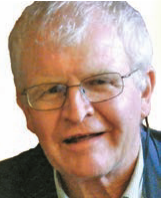Yes, it can be hard, but so can stagnation
In my leadership workshops, I show a cartoon of a man asking, “Who wants change?” and the assembled crowd enthusiastically raises their hands in response. But when he asks, “Who wants to change?” they look quietly down at their feet. Yes, it is human nature to want others to change to meet our needs, but the hard truth is that change can only start with what we control — ourselves!
Embracing the courage to change is a fundamental aspect of growing as a person and as a leader. Of course, personal change is easier said than done, even when you want to do it. We are all creatures of habit, and changing habits takes time and commitment.
This is true, even for simple changes. As a personal example, about five years ago I realized that I had been tying my shoes incorrectly going back to my childhood. No wonder they kept coming untied! But even when I committed to correction, it took a conscious effort not to fall back on old habits. Now, I finally get it mostly right!
If simple changes take that much effort, what about more significant changes that are important to our professional lives and serving as a leader? Here is a sample of areas that many of us need to work on:
• Becoming a better listener
• Building more meaningful relationships with colleagues
• Integrating your values in everyday work activities
• Being clearer about priorities
• Delegating tasks without micromanaging
• Devoting more time to long-term planning
• Strengthening your team
• Running better meetings
You may already want to achieve some of these, but can’t find the time. Doing what is necessary to free up time and energy — like devoting less time on our cellphone or email — requires a commitment to change as well.
Then there are the times we are forced to change, whether we want to or not. Change threatens our self-identity and self-worth, says Dr. Maya Shankar, a cognitive scientist recently interviewed by Dr. Brené Brown on her Dare to Lead podcast. She told the story of Scott, who unexpectedly faced serious medical issues but eventually came to the conclusion that, “Maybe my identity is more negotiable than I thought” and is happier now than ever. We need to prepare ahead for inevitable change, Shankar observes, by getting in emotional, spiritual and physical shape for resiliency.
Focus on your values instead of your fears, suggests Nick Talser in Harvard Business Review. “Reminding ourselves of what’s important to us — family, friends, religious convictions, scientific achievement, great music, creative expression, and so on — can create a surprisingly powerful buffer against whatever troubles may be ailing us,” he writes. ”Even though we are never free from change, we are always free to decide how we respond to it.”
What about leading change? Few businesses will be successful in the long term by doing things the same way that worked in the past. The best leaders know they need to be thoughtful about the ways they educate and inspire their team to successfully adapt.
Morgan Galbraith argues in Harvard Business Review that if employees don’t understand why changes are happening, a result can be resistance or pushback. “It’s important to spend time explaining the changes and why they are important,” he says. “Inspire people by presenting a compelling vision for the future.”
It is human nature for an initial reaction to change to be a personal sense of loss, writes Ken Blanchard. It is important to give people a chance to process what is happening with a, “clear plan and strategy for focusing people’s energy on the few desired behaviors that will produce the greatest results.”
Yes, change can be hard, but so can stagnation! Growing as people requires us to look for positive opportunities to change, and always be prepared to roll with it when necessary.
How do you handle change and what can you better? Do you embrace it when necessary and devote the time and energy to make it happen? Are there changes you want to achieve, but can’t seem to move forward? If so, identify what is holding you back and develop some practical action steps. How can you be more resilient when change happens unexpectedly? How can you be more effective as a change leader?
We each have an extraordinary opportunity to make a difference in people’s lives, including our own. Don’t underestimate your impact!
Douglass P. Teschner, founder of Growing Leadership LLC, can be reached at dteschner@Growing-LeadershipLLC.com.